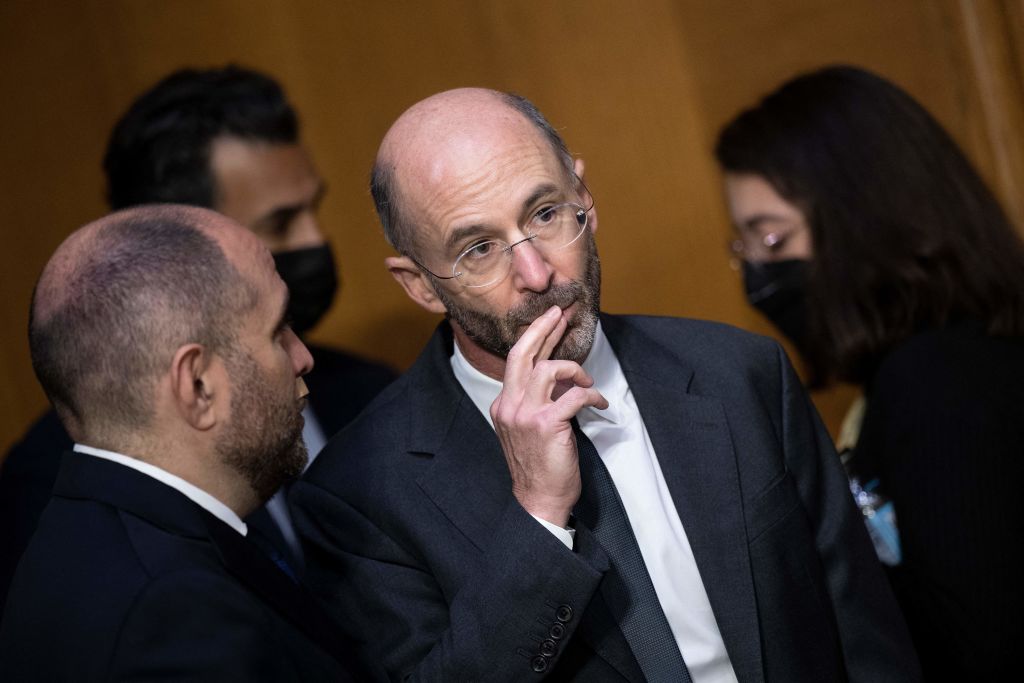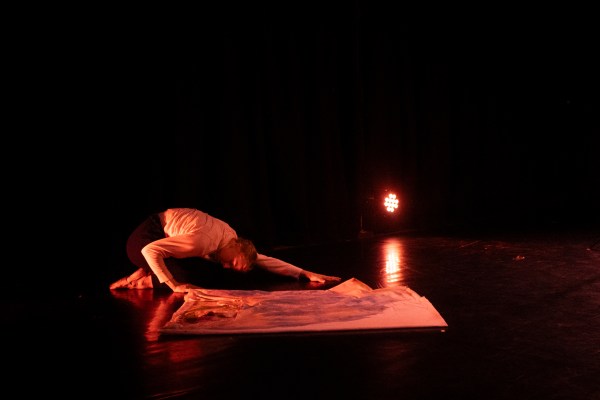Amid ongoing talks in October 2014 that would bring about the Iran nuclear deal nine months later, an associate of then-Iranian Foreign Minister Javad Zarif reached out to assure him of his commitment to the Islamic Republic’s cause.
“As an Iranian, based on my national and patriotic duty, I have not hesitated to help you in any way,” the email to Zarif reads, “from proposing to Your Excellency a public campaign against the notion of [nuclear] breakout, to assisting your team in preparing reports on practical needs of Iran.”
The email didn’t come from an Iranian negotiator or government official. It came from Ali Vaez, an Iranian American analyst at the Crisis Group who, according to the group’s website, led its efforts “to bridge the gap between Iran” and the other countries negotiating the Iran nuclear deal of 2015. Vaez continues to shape Iran policy in Washington today through his academic ventures and contact with U.S. government officials. But he’s not alone in furthering the Iranian government’s positions under the guise of independent research. Recent investigations by Iran International and Semafor, based on thousands of emails between Iranian officials and analysts, reveal that Vaez is one in a network of U.S.-based academics hand-selected by Tehran to boost its image abroad and covertly lobby U.S. officials on behalf of its preferred policies.
Former U.S. officials tell The Dispatch that the Obama and Biden administrations’ focus on engagement with Iran, particularly on its nuclear program, may have made it more susceptible to the influence operation. At least three members of the information campaign have been deeply engaged in formulating the Biden administration’s Iran policy, two as government employees and one, Vaez, as an informal adviser.
“It’s not a surprise to me that Islamic Republic officials meet with Western analysts—that’s not a surprise,” Jason Brodsky, the policy director of United Against Nuclear Iran, tells The Dispatch. “What is disturbing is the degree of coordination that these emails reveal with a hostile foreign power.”
When the Iranian information campaign began in 2014, the West was breaking away from its historic policy of isolating the Islamic Republic. Iranian officials led by Mostafa Zahrani—a top diplomat and a member of the Islamic Revolutionary Guards Corps—began outreach to Western think tankers with connections to Iran and found at least 10 willing participants in what became known as the Iran Experts Initiative (IEI), according to emails documented in the recent investigations. In exchange for access to top Iranian officials, several prominent Iran analysts toed Tehran’s line in op-eds and research papers, during interviews with American journalists, and on social media.
At the center of the Iranian campaign is the Crisis Group, a left-leaning nonprofit organization known for promoting engagement and de-escalation with U.S. adversaries, including Iran. One of its most famous alumni, Rob Malley—the special envoy for Iran and a key American negotiator in nuclear talks under the Obama and Biden administrations—in June was put on unpaid leave from the State Department after having his security clearance revoked a few months earlier. A month later, he was reportedly under investigation by the FBI for his alleged mishandling of classified information.
The recent reporting may provide new insight into his dismissal—at least three of Zahrani’s recruits became Malley’s top advisers. Among them was Vaez, whom Malley apparently tried to hire after joining the Biden State Department in 2021. Vaez’s security clearance was denied, but Malley continued to use him as a confidant. This account lends credence to a July Tehran Times article claiming that Malley’s “main problem” stemmed from his communications with Vaez and other unofficial advisers.
“Malley’s extreme closeness to his unofficial advisers of Iranian origin,” the Iranian media report noted, “which was perhaps his greatest strength and the reason for his appointment to this position in the new American government, has now become his Achilles’ heel and caused his downfall.”
Experts agree that the Biden administration may have initially seen Malley’s connections to Iran as a strength. But they also lent themselves to Iran’s malign efforts. According to Norman Roule, former national intelligence manager for Iran and a 34-year veteran of the CIA, Iran typically relies on some common characteristics in the experts it enlists to puppet its talking points: “if not sympathy for some of Iran’s positions, then a history of muted criticism of Iran’s aggression; no or modest policy experience; egos that respond to attention by high-level Iranian officials, [and] a desire to seek media attention.”
Iran likely found those traits in Vaez and at least two other IEI members who did manage to slip through the cracks as State Department hires, according to the recent reporting. Among them was Dina Esfandiary, another Crisis Group affiliate, who was appointed to Malley’s team in early 2021. Ariane Tabatabai, who now holds a sensitive position at the Pentagon, joined around the same time and later accompanied Malley to nuclear talks with Iran in Vienna. Prior to joining the Biden administration, the women had both in-person contact and virtual communications with Iranian officials, with one referring to them as part of the “core group” of IEI.
This role included multiple analyses championing the Iranian viewpoint on a number of issues, including the nuclear file. In one co-authored piece in the Bulletin of the Atomic Scientists, Esfandiary and Tabatabai argued during the 2014 nuclear negotiations against requiring Iran to curtail its existing uranium enrichment program. The Iran International investigation showed that Tabatabai emailed the article to Zahrani, the Iranian diplomat, writing that their “goal was to show what is said in the West – that Iran does not need more than 1500 centrifuges – is wrong, and that Iran should not be expected to reduce the number of its centrifuges.” Zahrani then forwarded the email to Zarif, the foreign minister. In another email, Tabatabai sought pre-approval from Iranian officials before accepting invitations to conferences in Saudi Arabia and Israel.
In addition to maintaining covert contacts up the ranks of the Iranian government, Tabatabai has family members living in Iran, including her father. It’s unclear how much of this information was disclosed during her security clearance application process, but a State Department spokesman leapt to her defense when pressed by Iran International, saying that the department was “honored to have her serve.” Her current employers at the Pentagon, however, have reportedly opened an investigation into Tabatabai in the wake of the new reporting.
Meanwhile, a group of Republican senators led by Sen. Roger Wicker, ranking member of the Senate Armed Services Committee, has called for the suspension of Tabatabai’s security clearance and a probe into her alleged foreign ties. “Iran continues to threaten U.S. military personnel in the Middle East and remains intent on assassinating American citizens here in the United States,” the senators wrote in a letter. “Given these facts, we find it simply unconscionable that a senior Department official would continue to hold a sensitive position despite her alleged participation in an Iranian government information operation.”
Tabatabai, Esfandiary, and Vaez are all products of a system that prioritizes access to Iran over ethics, experts say.
“Academics must access original sources in order to advance and gain tenure. To advance and gain tenure, therefore, Iran-focused academics must stay on Iran’s approved list if they want the visas that are necessary for promotion and tenure,” Michael Rubin, a Middle East expert at the American Enterprise Institute, tells The Dispatch.
But the U.S. government bears blame too, he argues. “The situation gets more complicated when policymakers see such access as a credential and never question the intellectual or ethical trade-offs inherent in the access.”
That appears to have been the case under the Biden administration. Whether U.S. officials fully understood the extent of the coordination with the Iranian government remains unclear, but the analysts’ high-level contacts were likely seen as an asset as the White House pursued a softer approach to Tehran. Reviving the Obama era-nuclear deal, from which former President Donald Trump withdrew the U.S. in 2018, has been a particular driver for the administration as it deals with the regime.
The administration’s “religious obsession” with the nuclear deal caused it to overlook the influence operation unfolding right beneath its nose, Former National Security Adviser John Bolton tells The Dispatch.
And new information about the people previously charged with reentering that agreement—Malley, Tabatabai, and, informally, Vaez—may undermine the legitimacy of the talks going forward.
“You don’t want your negotiator to be anything other than your advocate, and that’s I think what was clearly not happening here,” Bolton says. “It calls into question the whole thrust of the negotiation, and what exactly was going on, and how much they were telling Congress.”







Please note that we at The Dispatch hold ourselves, our work, and our commenters to a higher standard than other places on the internet. We welcome comments that foster genuine debate or discussion—including comments critical of us or our work—but responses that include ad hominem attacks on fellow Dispatch members or are intended to stoke fear and anger may be moderated.
With your membership, you only have the ability to comment on The Morning Dispatch articles. Consider upgrading to join the conversation everywhere.